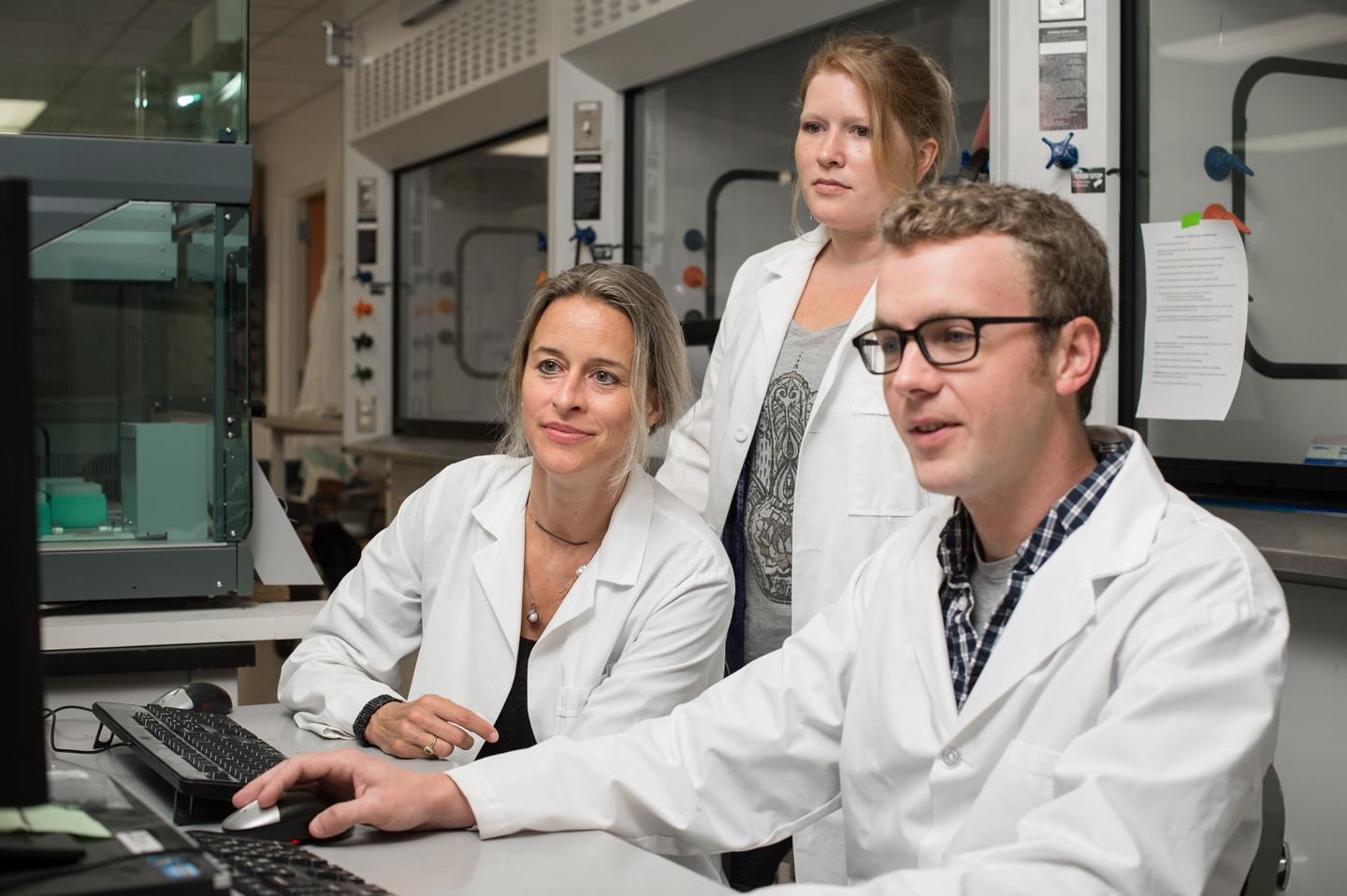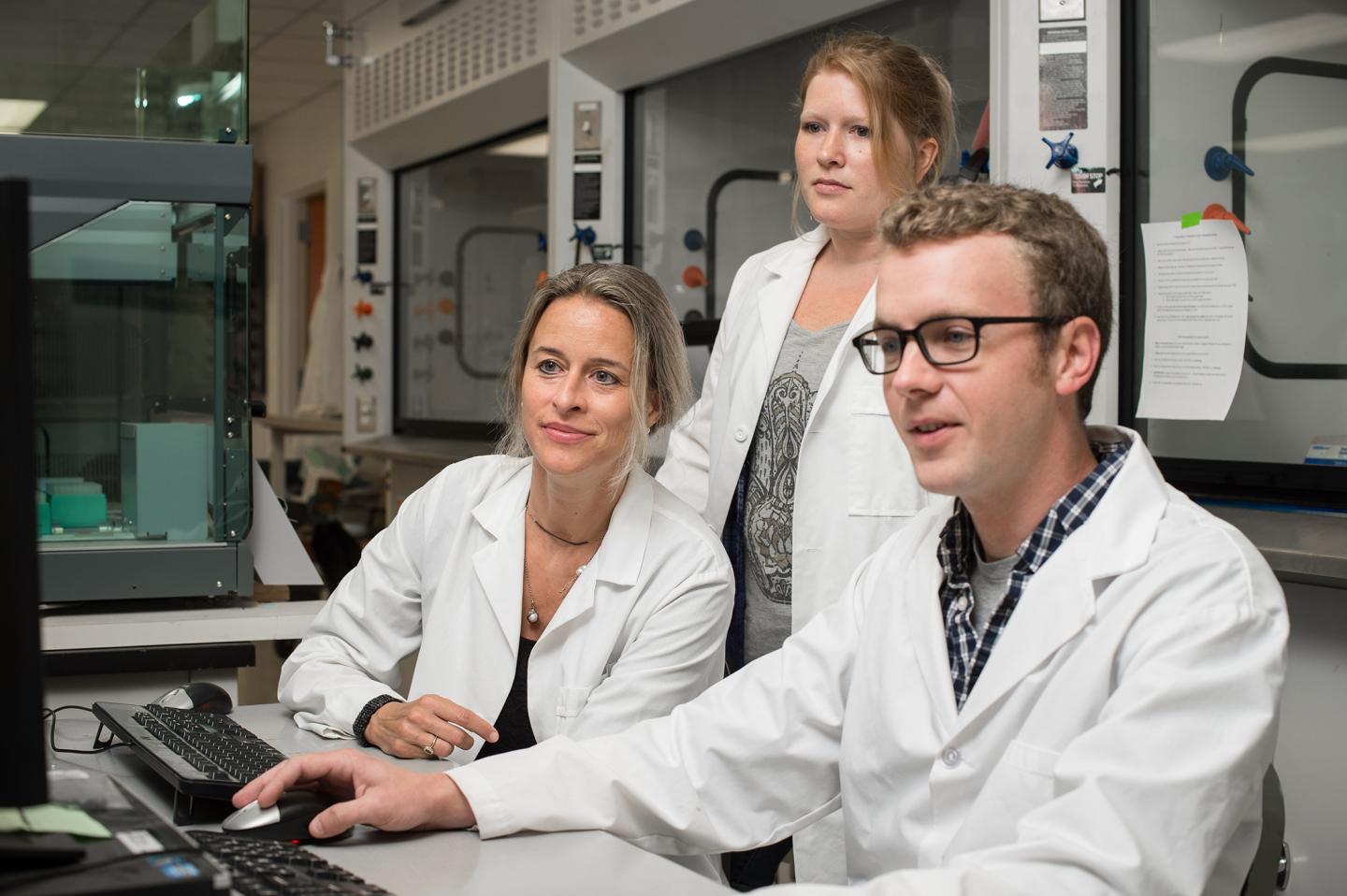
EAST LANSING, Mich. — A new discovery at Michigan State University has revealed how special genes stay open for business, helping diagram a mechanism that plays a key role in fighting inflammation and infections.
In the current issue of the Journal of Biological Chemistry, MSU scientists show that when immune cells encounter a bacteria, a number of genes become active. During this process, nucleosomes, which coat DNA and essentially block genes, are gone, leaving the genes open and ready to enlist in the fight against bacteria.
These particular genes are related to inflammation, and since inflammation plays a big role in atherosclerosis, this research could lead to advances in the development of cardiac medications. While past research has identified the genes involved in inflammation, the MSU team is trying to better understand the mechanism that makes them accessible, said Monique Floer, MSU biochemist and the study’s lead author.
“What causes some cells to express these genes while other cells do not?” she asked. “Does the packaging of DNA play a role in deciding which genes are expressed? We believe that it’s more about the regulation and the mechanics of how the transcriptional machinery is recruited than the genes themselves.”
Floer likens the process to Michigan winters. In the Midwest, it’s always snowing. Finding an open parking space that’s not covered with snow becomes a statewide pastime. Complicating matters, imagine that you have an electric car, and you need a special spot. There are only a few of them, and they have to be cleared of snow.
For this study, the snow blocking your space is the nucleosomes; they cover all cellular DNA evenly, more or less. The car is the transcription factor that wants to bind to the DNA, but your space, in this scenario, is only a small subset of sites that bear a specific sequence.
“The snow plow that clears the spots and increases your chances of finding a binding site is the nucleosome remodeler,” Floer said. “It clears out the nucleosomes, or the snow, and allows you to find an open parking space.”
This approach is different than past studies. Floer’s lab is focusing on understanding how access to the genome is controlled, rather than the notion that some genes are simply more open than others. Deciphering the secrets of the cellular snowplow, the nucleosome remodeler, allows scientists to take a different approach to tackling inflammation and identifying drug targets.
Specifically, the team extracted stem cells involved in inflammation and fighting infections from the bone marrow of mice. They grew them in petri dishes to become mature macrophages, white blood cells that devour any diseased protein in their path. In their experiments, they showed that cell-type specific transcription factors bind to macrophage-specific genes and recruit the nucleosome remodeler – the cellular snowplows. Once bonded, nucleosome remodelers keep the gene regulatory sites open by clearing away the blizzard of nucleosomes.
In addition, Floer’s team discovered that the remodelers function at these sites long before the genes are expressed and doing their jobs. This means that they are recruited at some point during differentiation of stem cells into their specific, adult cells.
“We find that as a cell differentiates into a specific cell type, it acquires all of the necessary information early on that dictates its behavior as an adult cell,” Floer said.
The next phase of this research will be expanded genome wide. Floer’s team focused only on a handful of genes. Along with tackling an entire genome, the team will experiment with environmental changes during differentiation to see what factors enhance the prevalence of cellular snowplows and how their absence at a critical time in development may lead to cancer.
The team includes Michael McAndrew, a genetics graduate student who spearheaded the study together with Alison Gjidoda, a former research technician in the lab.
“The whole team came together to contribute to these studies,” said Floer. “Without the dedication and enthusiasm of everybody in the lab and the support of my colleagues in the Gene Expression Focus Group here at MSU these studies would not have been possible.”
###
This research was funded in part by the American Heart Association.
Michigan State University has been working to advance the common good in uncommon ways for more than 150 years. One of the top research universities in the world, MSU focuses its vast resources on creating solutions to some of the world’s most pressing challenges, while providing life-changing opportunities to a diverse and inclusive academic community through more than 200 programs of study in 17 degree-granting colleges.
For MSU news on the Web, go to MSUToday. Follow MSU News on Twitter at twitter.com/MSUnews.
Media Contact
Layne Cameron
[email protected]
513-353-8819
@MSUnews
http://msutoday.msu.edu/journalists/
The post Cellular snowplow keeps genes open appeared first on Scienmag.





